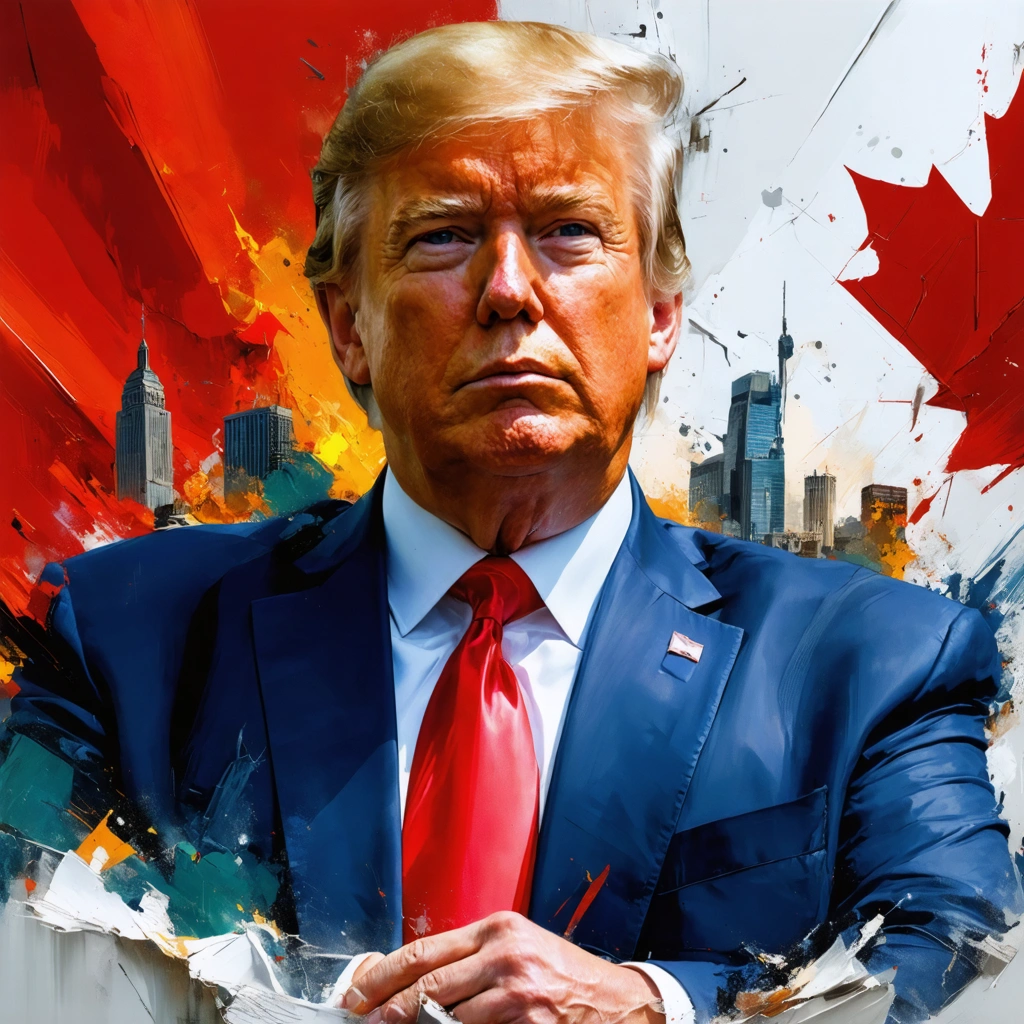
Introduction
The political landscape in North America has experienced significant shifts in recent years. Notably, leaders like Mexico’s Claudia Sheinbaum and Canada’s David Carney have strategically positioned themselves as adversaries of former U.S. President Donald Trump. This strategy has not only resonated with voters but also redefined political narratives across national borders. In a time when anti-Trump sentiments permeate public discourse, these leaders have harnessed a powerful political tool: branding Trump as a common enemy.
Trump as a Unifying Adversary
Political Strategy and Public Perception
Throughout the political spectrum, the phenomenon of rallying against a prominent figure, such as Trump, has emerged as a unifying theme for opposition parties. This practice has been particularly effective for leaders in neighboring Canada and Mexico. By leveraging their positions as critics of Trump, they have capitalized on a broader discontent with his policies and leadership style.
This approach offers several advantages:
- Clear Positioning: Establishing a clear stance against policies and actions promoted by Trump helps to create a distinct identity in the political arena.
- Voter Mobilization: Opposition to a well-known figure can galvanize voter bases, especially among those fearful of the repercussions of his policies.
- International Solidarity: The cross-border alignment of anti-Trump rhetoric strengthens political solidarity among leaders in Canada, Mexico, and other allied regions.
The Business of Political Branding
In the framework of modern political campaigns, branding plays a crucial role. In the business world, effective branding strategies can elevate a company’s profile, and similarly, in politics, a leader’s brand can define their legacy. The decision by Sheinbaum and Carney to delineate their political identities in opposition to Trump is a calculated move that aligns with the broader ideology of reform and change. This strategy demonstrates how political figures can align themselves with global sentiments against populism and authoritarian tendencies.
Regional Focus: Mexico’s Sheinbaum and Canada’s Carney
Mexico’s Political Climate and Sheinbaum’s Strategy
Mexico has a rich political history wherein opposition and reform have often been driven by a collective desire to distance the nation from controversial foreign influences. Claudia Sheinbaum has effectively tapped into this sentiment. By positioning herself against Trump’s legacy and policies, she has managed to consolidate support among proponents of progressive governance. Key aspects of her strategy include:
- Policy Differentiation: Emphasizing domestic reforms that prioritize transparency and social justice.
- International Positioning: Advocating for a foreign policy that distances Mexico from the divisiveness of U.S. politics.
- Public Communication: Utilizing media platforms to articulate a vision of change that stands in stark contrast to the populist narrative associated with Trump.
Sheinbaum’s businesslike approach to policy formulation echoes modern management practices, where strategic communication and clear goals are paramount. Her tactics underscore a broader trend among politicians who use a well-defined enemy—Trump in this case—to unify diverse voter segments behind a common cause.
Canada’s Political Reorientation Under Carney
Similarly, in Canada, David Carney’s political narrative has been shaped by his opposition to Trump. In a nation known for its diplomatic stance and social policies, Carney’s strategic positioning highlights several essential elements:
- Economic Stability: Advocating for policies that ensure economic resilience, countering Trump’s unpredictable trade and tariff measures.
- Social Cohesion: Promoting inclusivity and social safety nets as antidotes to polarizing rhetoric.
- International Collaboration: Strengthening ties with like-minded nations by emphasizing common values and shared democratic principles.
Carney’s approach is not merely about oppositional rhetoric but comes with a comprehensive blueprint that prioritizes sustainable growth and community well-being. The businesslike precision in his strategies mirrors corporate practices where the identification of competitive threats and their mitigation is key to long-term success.
Comparative Analysis and Strategic Outcomes
Comparing the Mexican and Canadian Approaches
While both Sheinbaum and Carney have adopted anti-Trump stances, the implementation of their strategies reveals interesting regional nuances. In the table below, a comparative analysis highlights several aspects of their political maneuvers:
| Aspect | Mexico – Sheinbaum | Canada – Carney |
|---|---|---|
| Core Message | Empowering domestic reform and distancing from foreign populism. | Promoting economic stability and social cohesion. |
| Strategic Advantage | Resonates with voters seeking progressive reforms and national autonomy. | Aligns with a broader societal consensus on democratic values and economic resilience. |
| Communication Style | Direct rhetoric focusing on transparency, government accountability, and reform. | Emphasizes teamwork, partnerships, and pragmatic policy-making. |
| Electoral Impact | Mobilizes grassroots support from the progressive and reformist public. | Appeals to centrist and liberal demographics concerned with stability and prosperity. |
The Economic and Social Implications
Beyond the realm of politics, the use of Trump as a political foil has broader economic and social implications. Business leaders and economic strategists have noted the following trends in response to this political branding:
- Enhanced Investor Confidence: Clarity in political positions often translates into more stable economic expectations, encouraging both domestic and foreign investments.
- Policy Innovation: The opposition strategy has forced a re-evaluation of long-standing policies, resulting in innovative approaches to governance.
- Cultural Recalibration: The delineation of political lines around a polarizing figure has led to a societal introspection on values such as inclusivity, accountability, and social unity.
These implications are critical for understanding not only current political dynamics but also long-term strategic planning. In a business environment, risk assessment and crisis management often benefit from clearly identified challenges. In the political arena, establishing a well-known adversary offers a similar roadmap to action, enabling leaders to streamline policy initiatives and galvanize support.
Conclusion: Future Prospects of Anti-Trump Politics
Sustaining the Narrative for Long-Term Gains
As the political discourse continues to evolve, the anti-Trump narrative championed by leaders like Sheinbaum and Carney is likely to play a significant role in shaping future policies. Strategic positioning against a universally recognized opponent has proven advantageous in terms of branding, voter mobilization, and ultimate policy formulation. However, maintaining such a narrative demands continuous innovation and adaptability.
For a long-term strategy, leaders must ensure:
- Consistent policy messaging that translates opposition rhetoric into constructive governance.
- Investments in communication infrastructure that support transparency and public engagement.
- A balanced approach to international relations that leverages political alliances without compromising national interests.
The businesslike approach of combining voter sentiment with practical policy measures provides a roadmap for future political successes. The anti-Trump stance, when complemented by pragmatic economic and social policies, can transform political challenges into opportunities for growth and reform.
In summary, the cases of Mexico’s Sheinbaum and Canada’s Carney illustrate the evolving landscape of modern politics where defining an unmistakable adversary, such as Trump, has become an effective strategy. Analyzing these developments reveals insights into the strategic, economic, and cultural dimensions of political branding. As leaders continue to navigate complex domestic and international challenges, the lessons from these political maneuvers will remain relevant for years to come.




